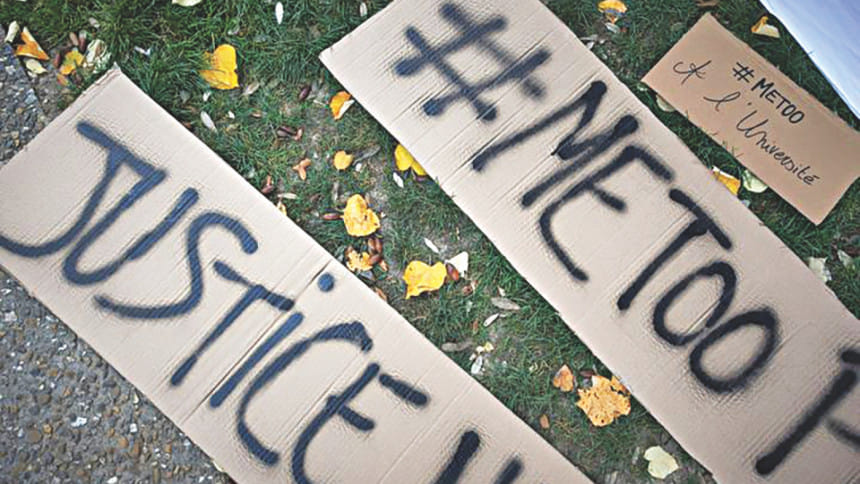ON FAKE FEMINISM

As feminism has wedged itself between the mainstream and counterculture, we see a new brand arising; it dons ‘The Future is Female’ tee-shirts and says it identifies as feminist, but makes rape jokes and engages in locker-room talk. It’ll use all the right hashtags, share all your Tumblr posts but at the end of the day, it’ll undress, letting go of the feminism it has wrapped around it. I’m talking about ‘fake feminism’, and we’ve all encountered it – whether in the media, a party, or in your Instagram DMs as a ‘nice guy’.
Fake feminism makes false equivalences: in a discussion about rape and abuse, you’ll hear it speak up, “But what about fake accusations?” The problem is that the discussion about false accusations takes precedence over the one about rape, ignoring the rarity of false accusations and the sheer abundance of reports about rape. Furthermore, it’s infuriating when you consider what’s classified as a false accusation could be a true event that’s never lent belief to. What you never hear said by those who talk about false accusations is that men have a higher probability of getting sexually assaulted than being falsely accused, but we almost never seem to talk about men getting raped.
Fake feminism isn’t intersectional, and it brings other women down to maintain the status quo. Feminism that’s meant for the ruling class can’t and shouldn’t be called feminism, and although it’s predominantly practiced by white women, those with significant power and clout wield it too. Beyonce preaches, singing, “Who run the world? Girls,” but abuses her female workers for Ivy Park, her clothing line that ironically aligns itself with women empowerment. As she spouts feminist lyrics, half a world away, she pays her workers 54 cents an hour and prevents them from unionising.
Fake feminism practices irony, a lot. It makes dishwasher jokes and humour that calls women the inferior sex. Natalie Wynn, or Contrapoints on YouTube (as she’s better known) says, “Sometimes irony can be a safe way to explore ideas you’re not quite ready to own.” It’s safe to make these jokes because when someone calls you out on it, you can flip it on them and say they’re not in on the joke, or that they just don’t ‘get it’. It’s not that everyone who makes these jokes hate women, but when you engage in humour with sexist undertones, it might be that misogyny has gotten to you too. It’s no secret that sexist jokes normalise sexism, and they come at the cost of devaluing women and validating sexist mentalities. Speaking of humour, good comedy punches up. Your jokes shouldn’t have to devalue women to be funny.
Fake feminism is constantly clarifying that you’re not ‘that type of feminist.’ It dissociates itself from third wave feminism, saying it stays true to the first and second waves, but the third is too extreme. It cherry-picks and chooses certain extremities of the third wave and uses it as a scapegoat – bra-burning and dyeing armpit hair. It even cites staged events to tell itself why third wave is cancer (like the viral, staged video of the woman pouring bleach on manspreaders). As the third wave does not have a defining piece of legislation, it can be easy to distort it, but to limit to its few inconsequential events ignores the overwhelmingly positive change it has brought us: the fight against workplace sexual harassment, putting women in positions of power, the notion of intersectionality, defeating stereotypes and the #MeToo movement.
In an age of information, it’s an act of ignorance to remain a fake feminist. Take a moment to reevaluate, and spoil yourself with the world of feminist media open to you. To feminists, root out the fakes from within; while it’s not your job to educate them, do them a favour and show them where they’ve gone wrong. As for me, I’ll wait – there’s so much change around me waiting to happen, and I can’t help but try and be a part of it.
Alfee Rubayet writes when she isn’t petting her fluffy, monstrous cat. Contact her at [email protected]

 For all latest news, follow The Daily Star's Google News channel.
For all latest news, follow The Daily Star's Google News channel. 



Comments